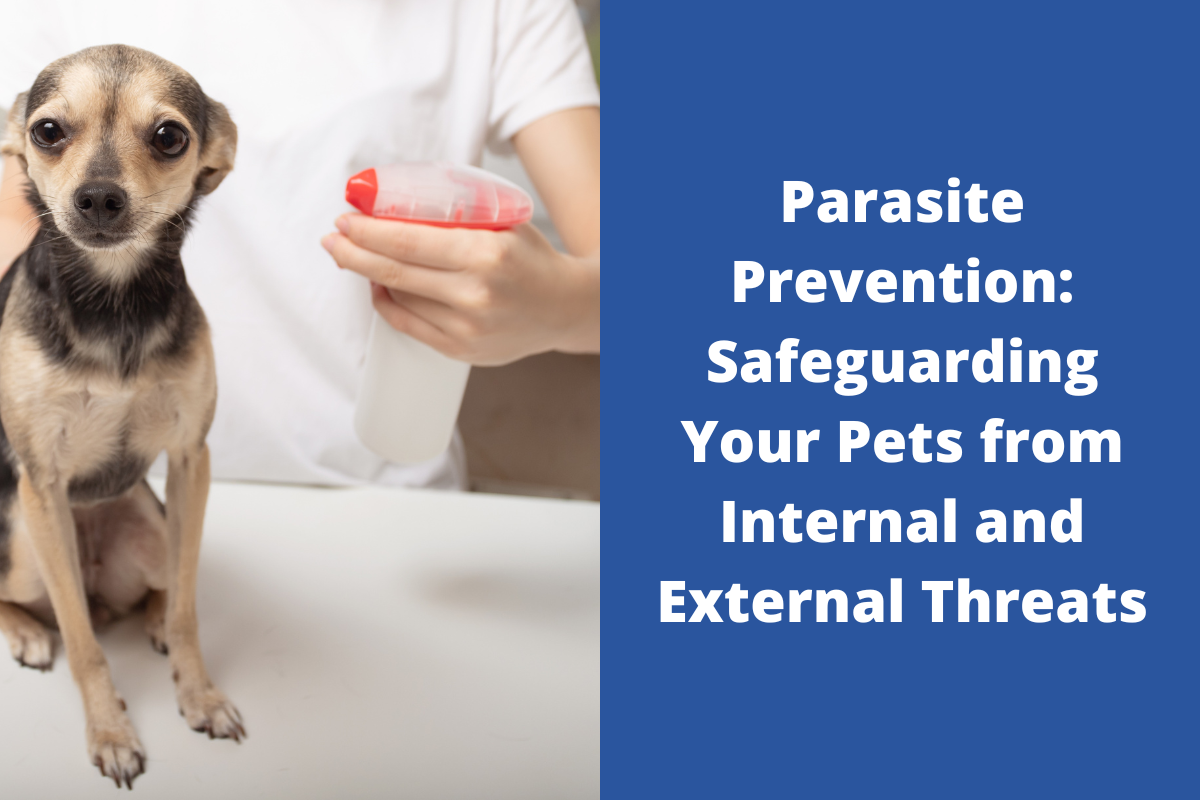Parasite Prevention: Safeguarding Your Pets from Internal and External Threats
Parasites may be small, but they can cause big problems for your pet. These tiny creatures, which include worms and protozoa, are carried by animals and humans alike and can infect domestic animals like dogs and cats and exotic animals like birds. Parasites can affect your pet’s health, causing pain and discomfort. They can also cause severe illness or even death. Fortunately, there are some easy ways to protect your pet from parasites, and knowing which ones to look out for will help keep them at bay.

What are Parasites?
Parasites live in or on a host organism and derive sustenance at the host's expense. There are primarily two categories to be concerned about: internal and external parasites. Internal parasites live inside the pet's body, while external parasites latch onto the outside.
Types of Parasites
Parasites can be broadly categorized into two:
Internal Parasites: These include worms such as tapeworms, roundworms, and heartworms. They can inhabit organs like the intestines, lungs, and heart.
External Parasites: This category includes pests like fleas, ticks, and mites. They primarily live on the pet's skin, causing irritations and sometimes transmitting diseases.
Common Parasites in Pets
Internal Parasites:
Heartworms: Transmitted by mosquito bites and can be fatal if untreated, particularly in dogs.
Tapeworms: Segments might be visible in pet feces. Often, it results from ingesting an infected flea.
Roundworms: Especially common in puppies and kittens.
External Parasites:
Fleas: Cause itching and irritation. It can lead to flea allergy dermatitis.
Ticks: Can transmit various diseases, including Lyme disease.
Mites: Can lead to conditions such as mange.
Signs of Parasite Infestations
Recognizing an infestation early can make all the difference. Here are signs to be vigilant about:
- Weight loss or decreased appetite
- Lethargy or weakness
- Visible segments or worms in feces
- Diarrhea or vomiting
- Bloated stomach or abdomen
- Persistent scratching or skin irritations
Pet Flea and Tick Safety
Ticks and fleas are tiny critters with a major nuisance factor. They don’t just cause itching and discomfort, they can transmit diseases like Lyme disease and tapeworm infections. Prevention measures include:
- Regular grooming and brushing can help detect and remove any fleas or ticks that may have hitched a ride on your pet.
- Keep your yard well-maintained, as tall grass and vegetation can attract these parasites.
- Avoid walking your pets in heavily wooded or grassy areas, especially during peak flea and tick season.
- If you live in an area known for high flea and tick activity, consider using tick-repellent collars or sprays for extra protection.
Welcome Lake Charles, Sulphur, Westlake Pet Parents for Parasite Prevention
At Country Club Veterinary Clinic, our commitment extends beyond words. We serve dogs, cats, and exotic pets in Lake Charles, Sulphur, Westlake, Iowa, Carlyss, and Jennings, with a promise to provide exceptional care, up-to-date information, and treatments tailored to your pet's unique needs. Schedule an appointment with us today, and let's ensure that those silent invaders stand no chance against your pet's radiant health.










